22 Jan

Content and copy are interchangeable. But there is a distinction between the two as one focuses more on a sales function, while the other is to inform. Even with these differences, having both on your website will raise further awareness. Plus, it can even boost sales. So, in this article, learn more about what makes web copy and content different. Then, know how you can use both to your advantage.
Web Copy vs Web Content: What Are Their Differences?
Many experts would consider web content a generalized form of all content (text, video, photo, and audio). In fact, web copy can also be part of web content. But because of web copy’s impact on decision-making, web copy may hold more weight in the customer’s purchase journey. Regardless, both have equal roles to play in getting the customer interested.
Function: Persuade vs Educate
If you want to persuade your visitors or potential customers, you need to craft a web copy. After all, copy refers to advertising and marketing purposes. Meanwhile, web content aims to educate and inform.
Usage: Marketing Funnel
Seasoned marketers know that the marketing funnel is a helpful resource in guiding leads into becoming customers. They create content and campaigns that fit each part of a marketing funnel. We’re going to look at the AIDA (Awareness, Intent, Decision, and Action) funnel from Single Grain.
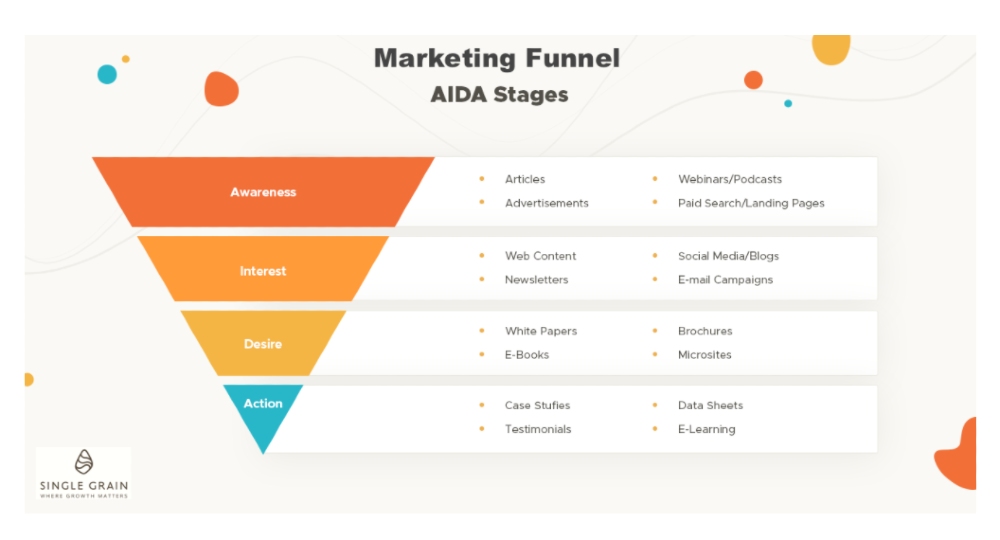
You can find web content in the awareness and intent stage wherein you’re guiding potential customers into making a decision. Blog posts, case studies, and e-books are content types that many consider that fulfill the definition of web content.
As your lead moves down the funnel, decision and action, that’s when web copy takes over the driver’s seat. You want your content to reflect what they should do. If we are to follow copywriting purpose, examples of web copy are:
- Landing page headlines
- Product descriptions
- Pricing pages
Length and Writing Style
Since we associate copy with advertising and marketing, less is more. Copywriters follow the same practices for web copy. It tends to be short, but impactful. They inject emotion and powerful words in their copy. Plus, they always have the customer’s needs in mind.
Meanwhile, web content tends to elaborate further on certain concepts or topics. That’s why blogs are a prime example of web content. Plus, it’s where you can help a potential customer become more aware of your product or service. Content writers are also masters with words. They hook visitors by conducting research and conveying complex topics and making it simple.
Web Copy and Web Content: How To Make Them Work Together?
Web copy and content may have differences in usage or function, but they can work hand-in-hand. After all, one of the end goals for businesses is to get a sale. As such, one cannot exist without the other.
Let’s take a look at how you can use both of them in a practical way.
Landing Pages
Landing pages are considered web copy because they function as a marketing or advertising tool. After all, web copy should persuade users to take action. For example, they can view your products further to help solve one of their problems. Or perhaps they want to contact you regarding one of your services. But these usually happen above-the-fold.
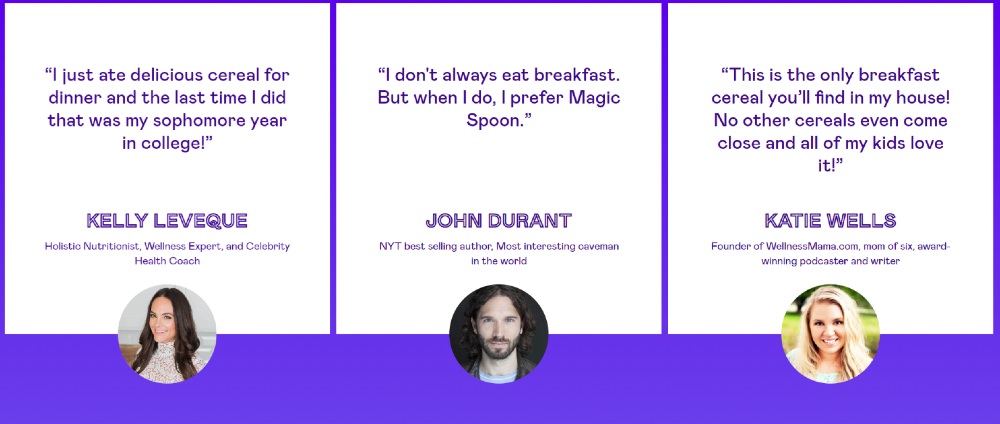
How about below it? In some instances where you have curious visitors wanting to learn more about your company’s value proposition, web content can give them an idea of what you can offer. One of the best examples is user-generated content like this one from Magic Spoon. While reviews usually persuade users, their insight can educate users to buy products or avail of your services.
Blog Posts
Most blog posts are content-related. It aims to educate the user regarding your company or topics related to your company. However, when done right, a blog can also contain web copy. Here’s why.
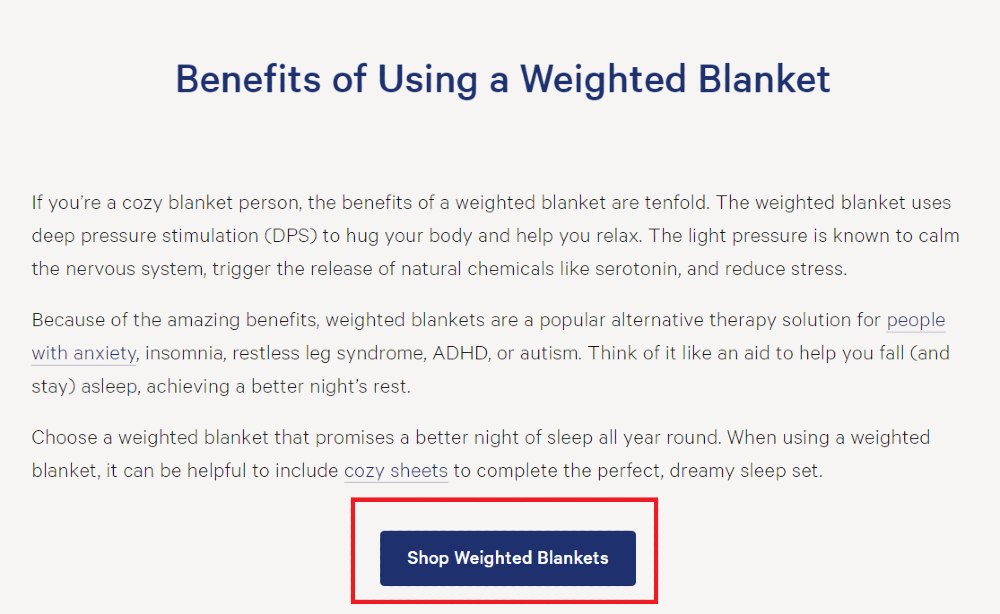
Some blog posts would have a call-to-action to view their products or assess if they have services that would help solve their problem. That’s where the copy comes in, and check out how Casper did it. You don’t have to use hard selling. You can guide users into checking out your pricing or maybe you can direct them to one of your product pages.
Product Descriptions
While product descriptions lean heavily toward being just a web copy, it can also be considered web content. Sure, you want customers to buy your products and convince them yours is better than others. But as web content writers, you can lead potential visitors and customers to your site by using keywords. And for Star Wars fanatics, they might yield this result from Firebox when they search for Star Wars Hand Sanitizers.
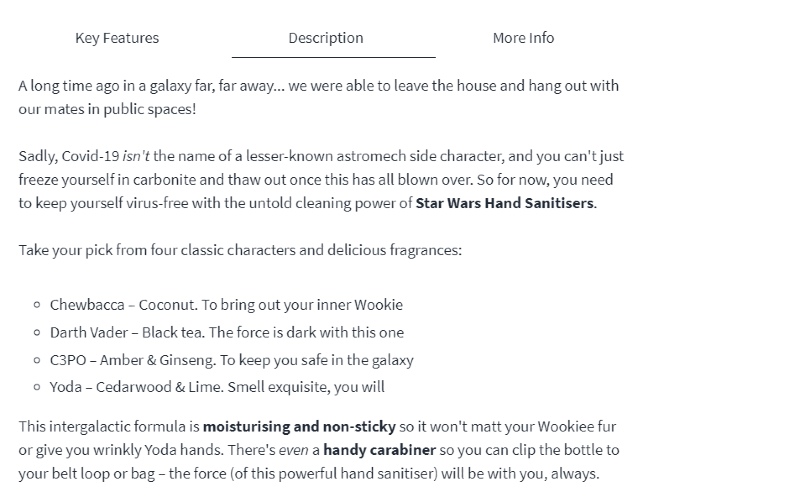
As for web copy, not only do you want to convince the user to buy your item. But you want to give them a sense of urgency too. For example, you can add something like, it has only a few in stock. Or have a timer when you have a discount.
Social Media Posts
While it’s not on-site web copy or content, social media has become critical in any organization’s visibility and growth. Here are the types of social media posts you can publish:
- Typography
- Images
- Videos
- Stories (or ephemeral content)
- Social media ads
Some may not have a social media marketing strategy in place. Maybe, the reason they have social media accounts is to widen their reach. And that’s fine. Perhaps we can consider their posts as web content. And in some cases, they aim to educate, like this one from Murad Skin Care.
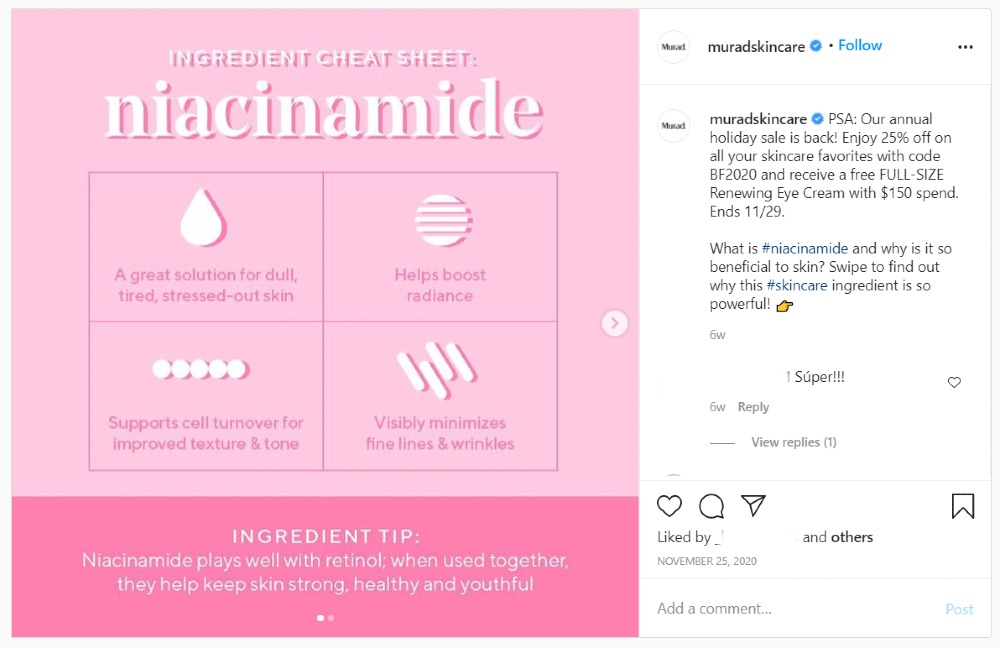
However, those who find value in social media marketing will use copywriting techniques. This can give them an advantage over their competitors, especially when they want to boost sales using social media. Here’s where you’ll see how length is tested considering some limitations over space and characters (i.e. word count, spaces, punctuations).
Emails
Again, here’s another example of an off-site web copy or content. However, you can lead customers to your website depending on the content you send to them. You can also use the marketing funnel for emails. For one, it can be considered web content when you have an email subscriber and introduce them to your company and your products or services.
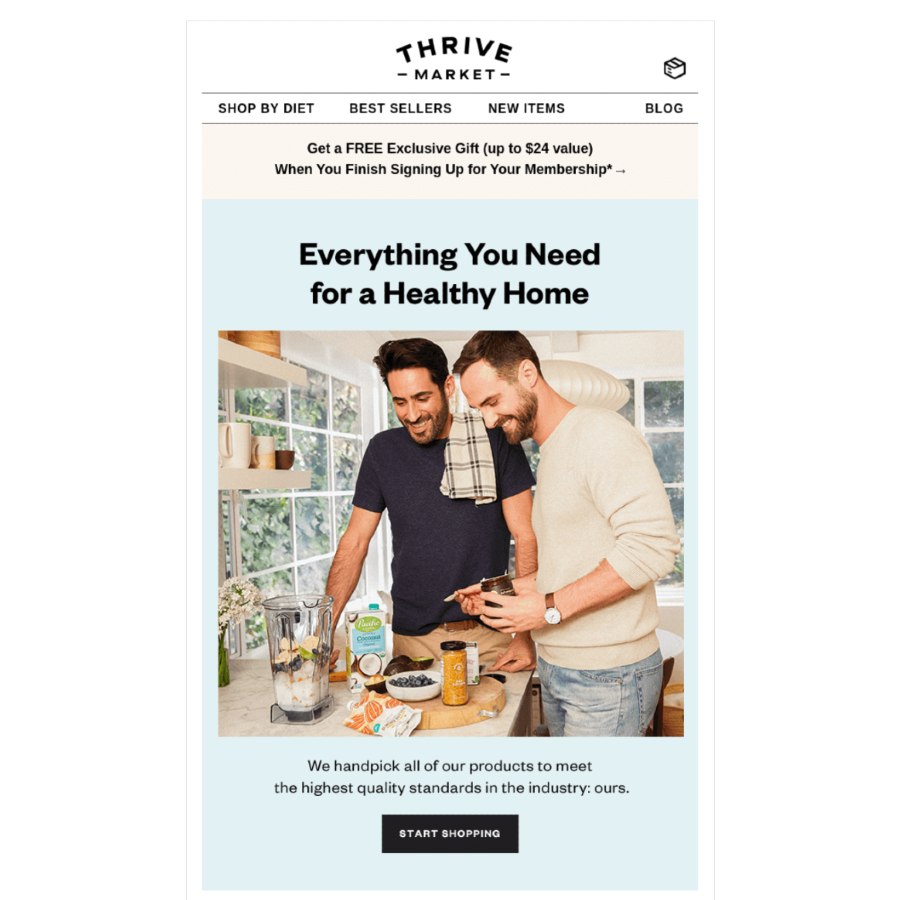
But as time goes by, you might be inclined to send more promotional emails to loyal subscribers. You can consider this as a copy because you’re persuading subscribers to purchase something or take action. And if you want to take a look at how you can do it, check out how Thrive Market integrated copy in their promotional email.
Final Thoughts
Web content and web copy may seem alike, but writers present and deliver them in different ways to engage the viewer to get more information or buy your product or service. Both are crucial to one another in attaining marketing and sales goals. And your website or any other digital platform should have a mix of both to drive more traffic and get more customers.










